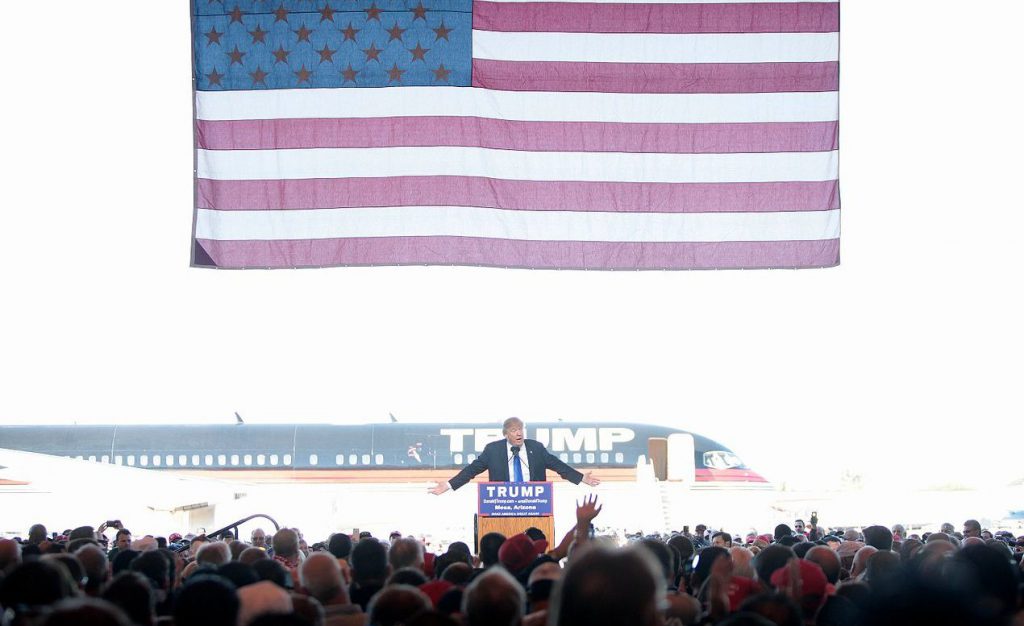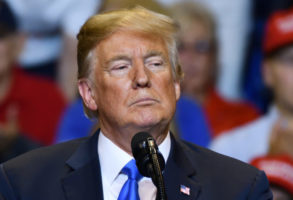
Published March 25, 2019
This piece is a reply to Christopher DeMuth’s Winter 2018/19 Claremont Review of Books essay “Trumpism, Nationalism, and Conservatism.”
On the face of it, Christopher DeMuth’s extraordinary essay offers a characteristically brilliant synthesis. Pulling together the threads of our peculiar situation, he helps us draw some conceptual order out of political chaos. But in the depths of his argument, DeMuth does more than that: He offers what may be the virtue that is now in shortest supply of all in our politics. He offers genuine hope for a way forward.
The essay frankly recognizes a set of circumstances that, in its totality, his proven awfully difficult for most of us conservatives to acknowledge together. But then it proceeds to reason from these toward an agenda that is both plausible and promising, and without getting caught up in a dispute over Donald Trump. By so doing, DeMuth raises the possibility of a future in which conservatives could work together despite continuing deep differences over Trump, even though these differences matter and are not likely to be resolved. “Post-Trump,” his essay suggests, need be neither “pro-Trump” nor “anti-Trump,” provided that conservatives can agree that it also must not be a return to “pre-Trump.”
This will not be easy to achieve, of course, precisely because intra-conservative disputes over Trump involve serious, substantive disagreements. Among other things, each side in that struggle views the other as evincing a dangerous weakness.
Trump’s critics tend to look upon the case for him as rooted in a desperate panic about the left unbecoming a self-governing people and unfounded in the actual weakness of today’s confused and fractious progressivism. This hysterical despair, Trump’s critics say, has been used to justify the elevation and even celebration of a leader who by temperament, experience, and character is dangerously unfit and stands to disorder our national soul.
Trump’s supporters, meanwhile, tend to look upon the case against him as rooted in a soft, prim complacence that is willfully blind to the dangers confronting our civilization. The critics, they say, are desperate to avoid offending elite sensibilities, eager to play only the part assigned to them by overbearing progressives, and content merely to occasionally slow our descent into decadence.
Each side takes its responsibility to the country seriously, and so finds it hard to abide what it takes (perhaps unfairly) to be the other’s feeble dereliction. But DeMuth’s powerful analysis helps us see that this dispute seems intractable because it is distorted by Trump’s distinctly disordered personality. The real question of the moment in the politics of the West is whether the political arrangements of the Cold War era can be stretched into this century or whether a new series of pressures and priorities will give new shape to our political life.
At the heart of that question is the exhaustion of the late-20th century bipartisan elite consensus around a soft libertarianism—both cultural and economic—that has been revealed in our time to be deeply unsatisfactory to large swaths of the public. The left has so far proven unable to respond to this dissatisfaction adequately, in part because it is thoroughly wedded to the cultural facet of that libertarianism and has no way to process the public’s unease with some elements of it as anything other than rank bigotry.
Some on the right, meanwhile, have insisted on holding fast to the economic elements of the libertarian elite consensus, while others have been eager for many years to articulate a 21st-century conservatism that speaks to working families and the middle class—indeed to all classes—in the language of solidarity and opportunity. But both groups of conservatives have been divided internally over Trump—with some people in each rejoicing at how he drives the left crazy and others alarmed by his narcissism, corruption, divisiveness, and recklessness.
The right’s internal debates about the future have therefore been perverted by the Trump question—understandably, but dangerously. What is most important about DeMuth’s essay is that he offers one plausible way to understand what sort of question we should ask ourselves instead: Should our politics be oriented by an implicit atomistic libertarianism or by a renewed focus on the nation as a crucial locus of political life?
What is national, as DeMuth suggests, should be understood not in opposition to local and communal prerogatives or individual rights, but as a natural culmination of the framework that protects them. The reinvigoration of national cohesion and solidarity is essential to the reinvigoration of our aspirations in terms that are social, cultural, and constitutional—and therefore genuinely political.
For Americans in particular, the appeal of the national can be both philosophical and visceral—because we share a common home in which we have lived a common life together that began in a commitment to an ideal. If there is a difference between patriotism and nationalism, that difference is blurred and moderated in constructive ways by our distinctly American national commitments. DeMuth helps us see what a politics rooted in these commitments might look like.
Whether Trump sees any of this or has only had it superimposed upon his rhetoric and action by friendly intellectuals is far from clear. And only time will tell if he advances or retards such a cause in practice. His critics (and I am one) are more concerned than ever that statesmanship requires leaders of a caliber the president does not approach.
DeMuth certainly implies that a functional politics will need to be very different from our current political landscape. “In the wake of the Trump rebellion, we should aim to supplant rebellion with relatively stable political competition and mutual accommodation and a spirit of common destiny,” he argues. “We need a more capacious nationalism.”
That suggests that what follows Trumpism should be very different from Trumpism. But it should be different, as well, from what preceded Trumpism. And it would be wise to emphasize the goals DeMuth sets out: the revitalization of the Congress, the refocusing of our politics on core unifying priorities, and (in the face of what has become a thoroughly bipartisan delinquency) the revival of fiscal responsibility.
Our future will be determined less by our approach to Trump than by our response to the challenge DeMuth has put so powerfully before us.
Are we up to it? Let’s hope so, and let’s do more than hope—together.
Yuval Levin is the editor of National Affairs. He is also the Hertog Fellow at the Ethics and Public Policy Center, a senior editor of The New Atlantis, and a contributing editor to National Review.





